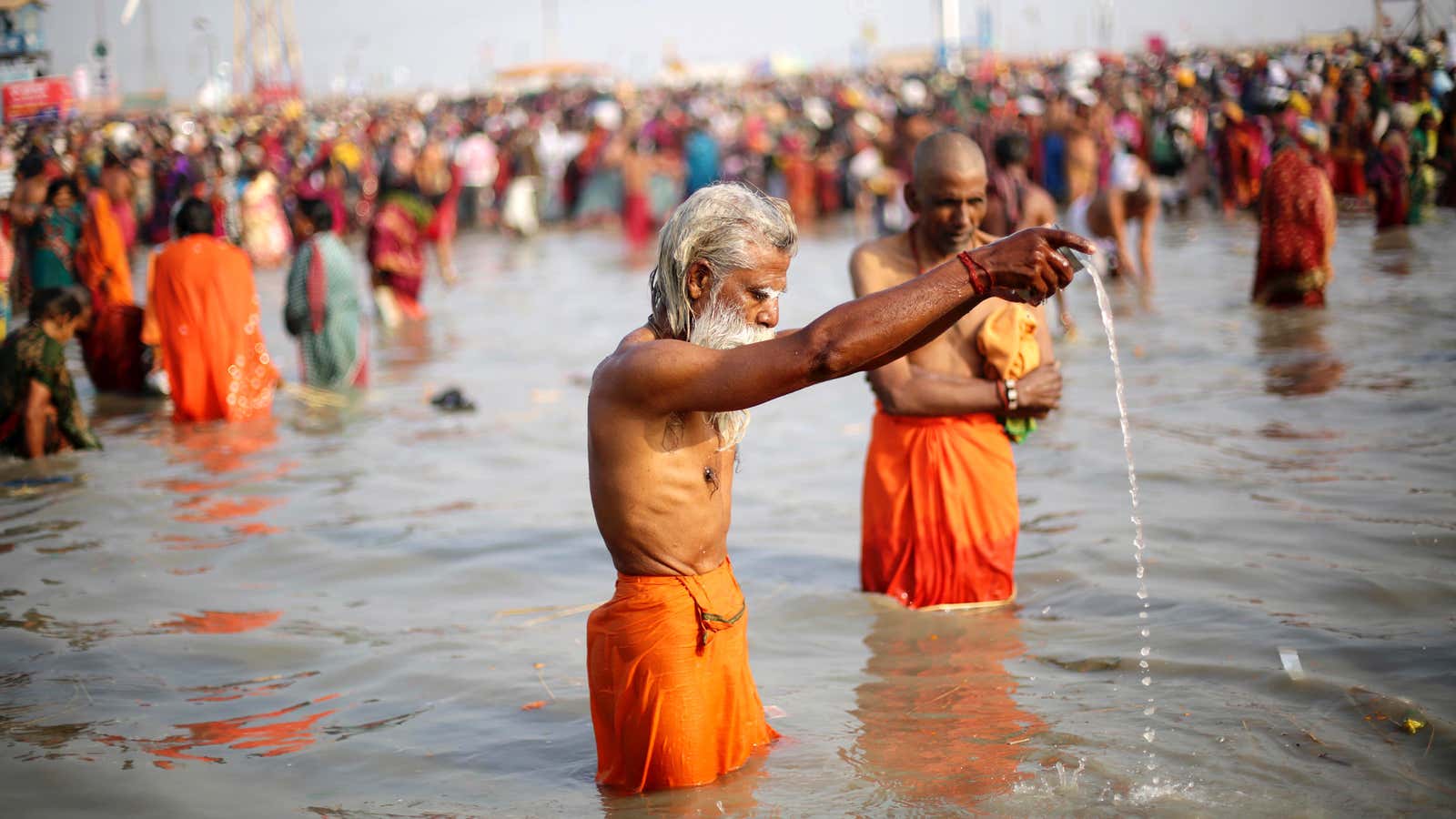Over decades, India’s holy rivers have been massively polluted with sewage, industrial chemicals, and pilgrims’ ritual bathing. But they may now get a new lease on life: In a landmark ruling on Monday (March 20), the high court of the northern state of Uttarakhand established two of India’s sacred rivers, the Ganga and Yamuna, as “living entities,” the Hindustan Times reports. The new order makes polluting or damaging the rivers legally comparable to hurting a person.
Since the rivers are not sentient beings that can fight for their new-found fundamental rights, they have been assigned three officers as legal guardians to ensure their conservation and protection, according to India Today. The three legal custodians are the director of the Namami Gange program, the Uttarakhand chief secretary, and the advocate-general of Uttarakhand. The court has also ordered that a “Ganga management board” be set up within the next eight weeks.
Some stretches of the 2,500-km-long Ganga, which originates in the Hindu pilgrimage town of Gangotri in Uttarakhand, have stagnated to the point where they are now unable to support aquatic life. A third of the drinking-water supply in India’s capital, Delhi, comes from a reservoir in the northernmost corner of the city that breaks away from the Yamuna right before it becomes toxic. Yamuna, a tributary of the Ganga, originates at Yamunotri in the Garwhal Himalayas.
The Indian government has been trying to contain the pollution of these two rivers. It just allocated Rs1,900 crore ($291 million) to 20 projects—13 of them in Uttarakhand—under the Clean Ganga project. Most of the funds will go towards building new sewage treatment plants and upgrading existing ones. In mid-2016, Rs 3,703 crore ($567 million) was spent on the same project, but resulted in no significant improvement.
India’s rivers aren’t the first to be bestowed with human-like status. Recently, the indigenous Māori people of New Zealand rallied to recognize the Whanganui river as an “ancestor” with the same rights as a human being in their country. In India, religious idols enjoy the same sanctuary. Anybody who knowingly defaces a temple or the idols within can face up to two years in prison.
